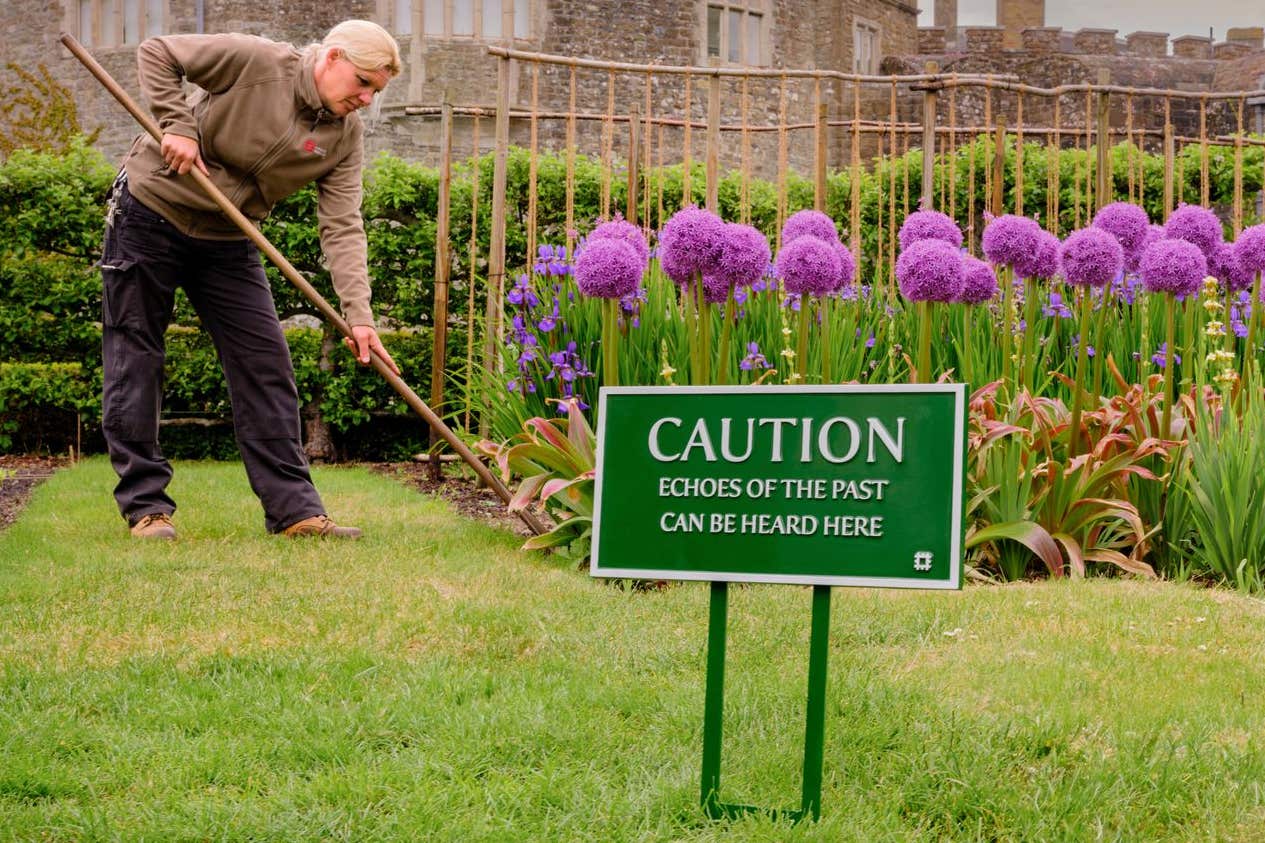Visitors told to experience historic sites with senses as phones ‘overstimulate’
The charity has added signs with messages such as: ‘Beware this view will live long in the memory.’

Your support helps us to tell the story
From reproductive rights to climate change to Big Tech, The Independent is on the ground when the story is developing. Whether it's investigating the financials of Elon Musk's pro-Trump PAC or producing our latest documentary, 'The A Word', which shines a light on the American women fighting for reproductive rights, we know how important it is to parse out the facts from the messaging.
At such a critical moment in US history, we need reporters on the ground. Your donation allows us to keep sending journalists to speak to both sides of the story.
The Independent is trusted by Americans across the entire political spectrum. And unlike many other quality news outlets, we choose not to lock Americans out of our reporting and analysis with paywalls. We believe quality journalism should be available to everyone, paid for by those who can afford it.
Your support makes all the difference.Visitors to historical landmarks have been told to use their senses to imagine the past as today’s culture is “overstimulated” with the continued use of mobile phones.
English Heritage has put up signs to encourage visitors to use their sight, hearing, taste, touch and smell when visiting the charity’s sites.
The notices feature messages which include: “Caution echoes of the past can be heard here”, “Beware this view will live long in the memory”, “Warning smelling these flowers will transport you back in time” and “Stop take off your shoes and stand where history happened”.
Louise Crawley, landscape adviser and historian at English Heritage, said people are “constantly overstimulated and expected to be at the end of a phone 24/7” where as historically the public derived “much pleasure” from “simple sensations”.
She added: “We hope that our visitors will be inspired to take the time to focus on the sensations around them and, in doing so, form a deeper understanding of the lives of those who went before.”
The charity has put the boards in various grounds such as the Tudor artillery fort Walmer Castle, constructed for Henry VIII, in Kent and Jacobean-style country home Audley End House and Gardens in Essex.
Ms Crawley also said: “Listen to the crunch of gravel underfoot at Down House, which Charles Darwin would have heard on his daily thinking walks.
“Feel the wind pounding your face on Hadrian’s Wall, as Roman sentries would have done on duty two thousand years ago.
“Or scan the view across the (Great) Mere from Elizabeth I’s rooms at Kenilworth Castle, imagining it filled with water as it was when she looked out upon it.”
The charity has also created a visual guide, put together by English Heritage historians, called 50 Ways To Explore Using Your Senses on its website.
It includes suggestions such as feeling the chill of ancient stones, tasting heritage produce grown in historic kitchen gardens, taking on new perspectives from the vantage points of historic figures and sniffing out the onsite animals.
The signs will be at English Heritage sites from now until the end of July.
Please head to the charity’s website, english-heritage.org.uk, for more information on its guide.